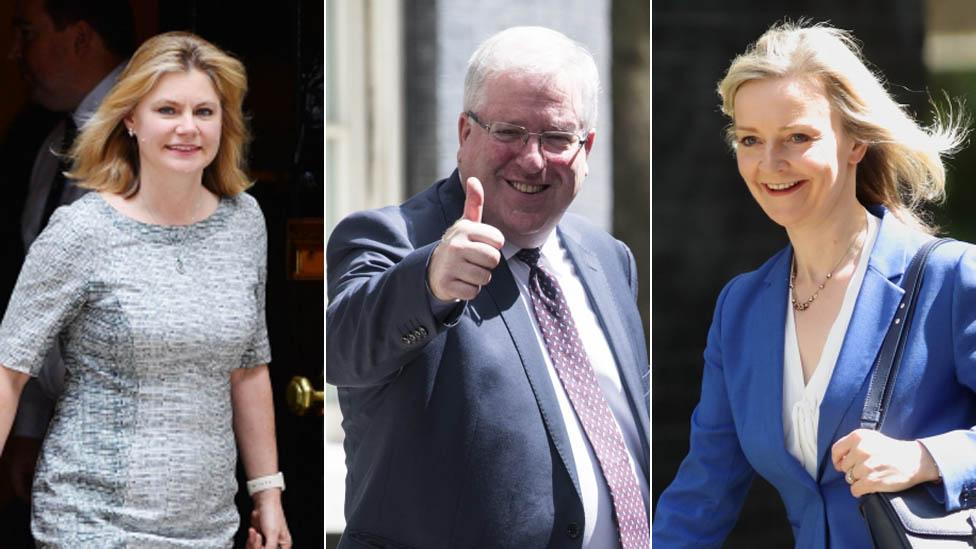PM Theresa May makes more ministerial changes
- Published
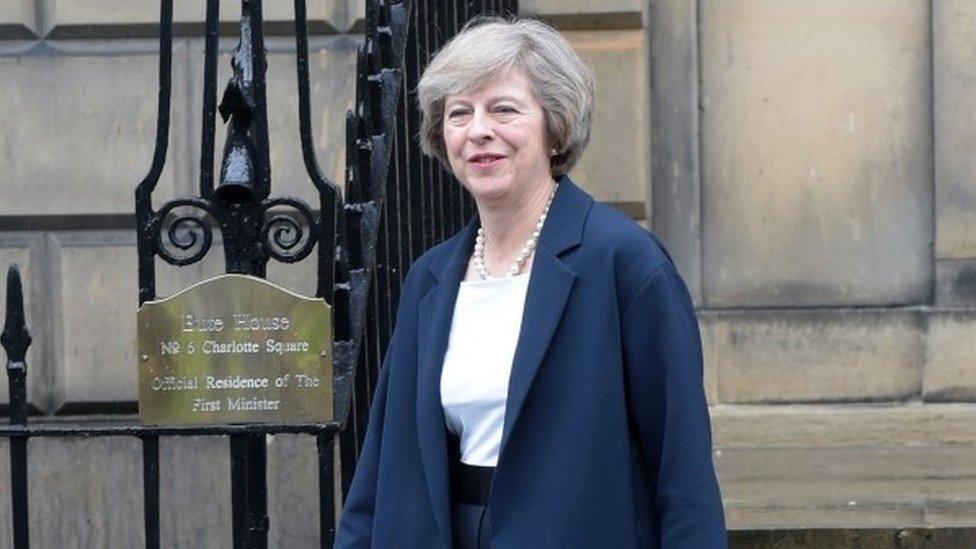
PM Theresa May has unveiled more junior ministerial appointments, as the shape of her government nears completion.
Sir Alan Duncan returns to the front bench as a foreign minister and Mrs May's former parliamentary aide Michael Ellis is now deputy Commons leader.
Prisons minister Andrew Selous is the latest to leave the justice department. Sam Gyimah and Phillip Lee join it.
George Hollingbery has been moved from the whips' office to become Mrs May's parliamentary private secretary.
Business minister Anna Soubry, Dominic Raab at justice, and pensions minister Baroness Altmann have all left government.
Baroness Altmann, who resigned on Saturday, was made a peer and appointed minister for pensions by David Cameron in 2015 after carving a career out of fighting for older people's rights.
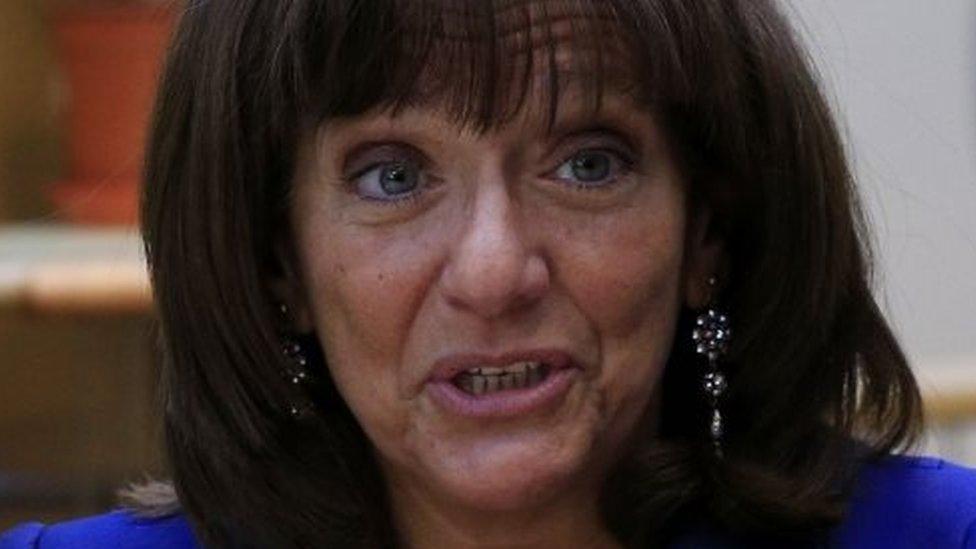
Baroness Altmann called for more help for women forced to work longer by the government's decision to extend the retirement age
Other ministerial appointments include:
Ben Wallace as security minister at the Home Office
Baroness Anelay of St Johns as Foreign Office and international development minister
Earl Howe as defence minister and deputy Lords leader
Simon Kirby as economic secretary
Brandon Lewis as policing and fire service minister
Rt Hon Matt Hancock as minister responsible for digital policy at the Department for Culture, Media and Sport
Jane Ellison MP as financial secretary to the Treasury
Jo Johnson as joint minister for the Department for Education and the Department for Business, Energy and Industrial Strategy, leading on universities and science
Rt Hon John Hayes as transport minister
Damian Hinds MP as work and pensions minister
Robert Goodwill MP as minister for immigration at the Home Office
Philip Dunne MP as health minister
Nick Hurd MP as minister in the Department for Business, Energy and Industrial Strategy
Rt Hon Greg Hands MP as international trade minister
Lord Price as minister for trade and investment at the Department for International Trade
In her resignation letter to Mrs May, Baroness Altmann said that her efforts to improve pensions policy over the past year had been thwarted by "short-term political considerations".
'Ineffective and complex'
She called for more help for women forced to work longer by the government's decision to raise their retirement age.
"I am not convinced the government adequately addressed the hardship facing women who have had their state pension age increased at relatively short notice," she said.
And she said that to tackle the "crisis" in social care funding, the government should develop a "one nation" lifetime pension.
The current "ineffective and complex" system for encouraging people to save for their retirement through tax breaks "disproportionately" favours the wealthy and leaves lower earners "seriously disadvantaged", she said.
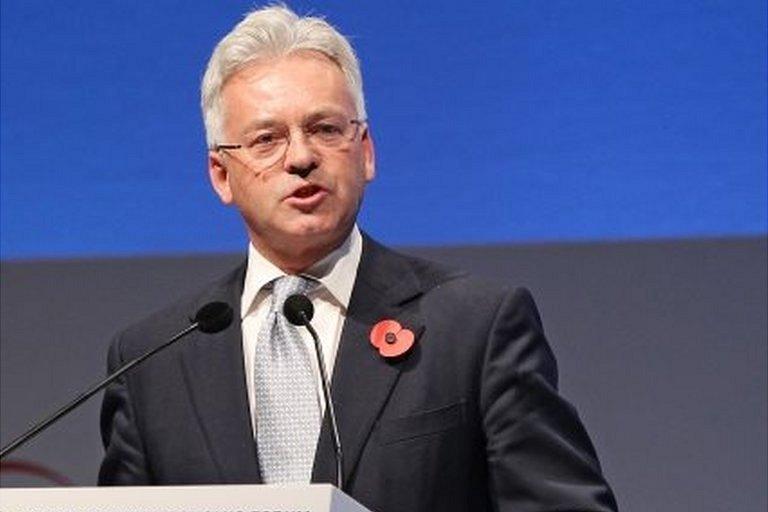
Sir Alan Duncan was formerly a minister in the Department for International Development
Ms Soubry tweeted, external to say she had handed in her resignation on Friday.
Other people to leave the government include Ed Vaizey, culture minister in former Prime Minister David Cameron's administration, who tweeted, external to say he would be supporting from the back benches.
Penny Mordaunt and Mike Penning have been appointed ministers at the Department for Work and Pensions and Ministry of Defence, while Sir Oliver Heald has become a minister in the Ministry of Justice.
Ms Mordaunt, who was previously an Armed Forces minister and a vocal Brexit supporter, made headlines earlier in the year when she said that it was "very likely" Turkey would join the European Union in the next eight years.
And Mr Penning, who has served alongside Mrs May at the Home Office, was previously a policing minister.
Cabinet appointments
On Thursday Mrs May completed appointing her cabinet, in what was seen as a major departure from the top team put together by her predecessor David Cameron.
George Osborne, Michael Gove, John Whittingdale, Nicky Morgan and Oliver Letwin were all sacked, meanwhile Liz Truss became justice secretary, Justine Greening took over at education and Tory leadership contender Andrea Leadsom was promoted to environment secretary.
Former London mayor and face of the Leave campaign, Boris Johnson, became foreign secretary, and Philip Hammond was made chancellor.
Amber Rudd - formerly the energy secretary - took over Mrs May's former role as home secretary.
Eurosceptic David Davis, meanwhile, took charge of negotiating Britain's exit from the European Union, in the newly-created post of Brexit secretary.
Former minister Liam Fox returned to the government to head the newly created Department for International Trade.
- Published15 July 2016
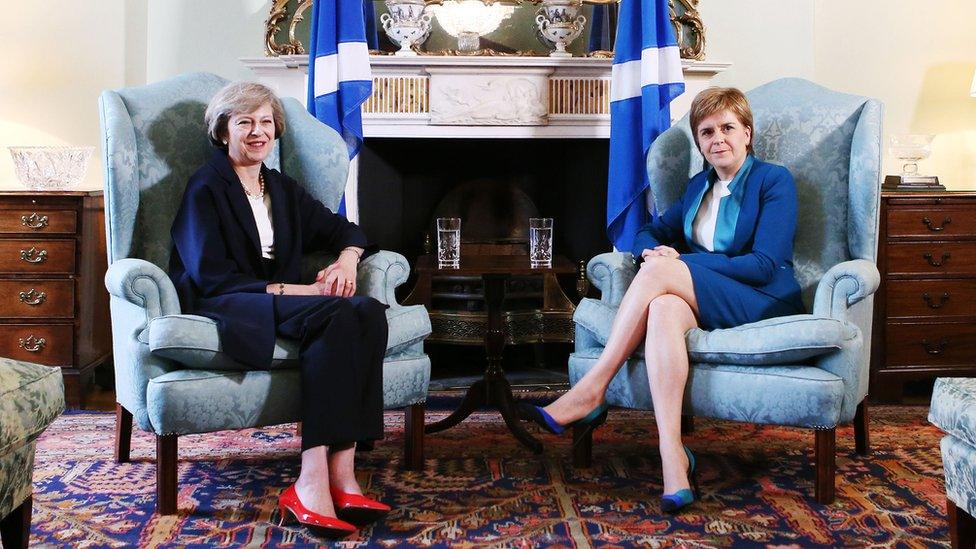
- Published14 July 2016
